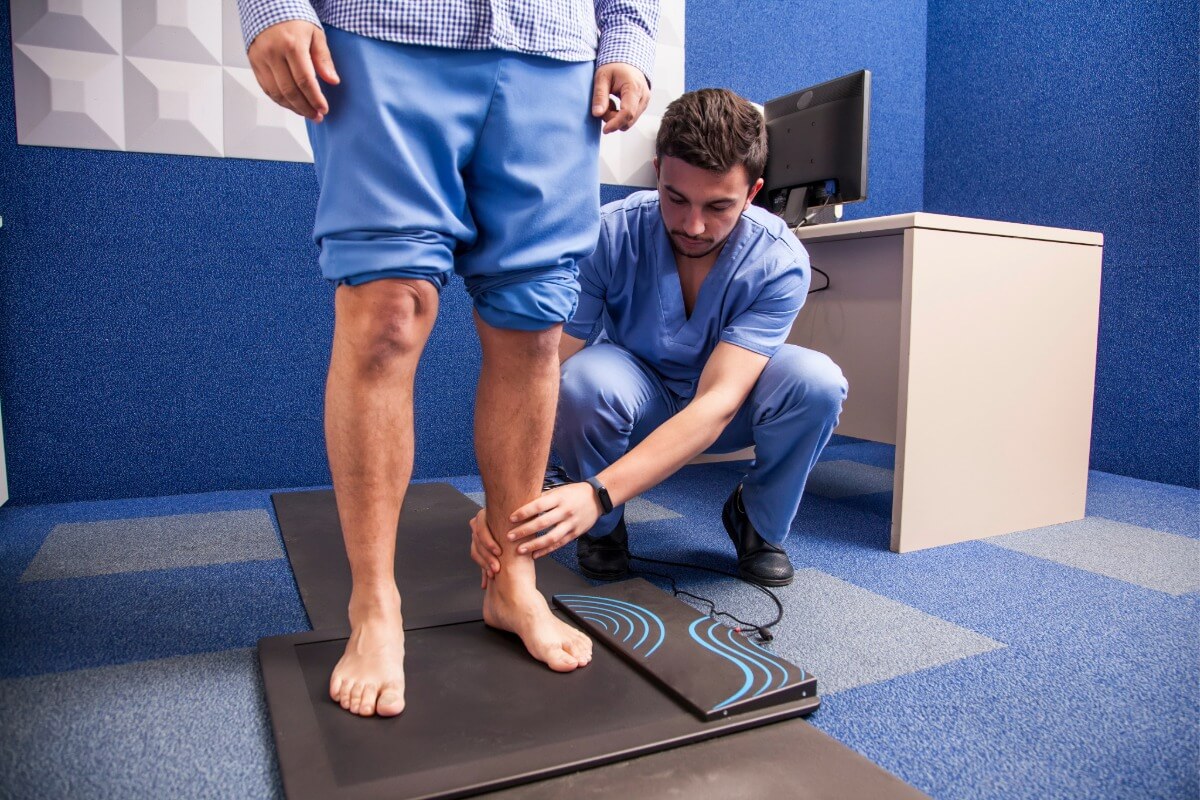Athlete's Foot: What Is It and How to Treat It

Athlete’s foot is one of the most common foot ailments affecting people. Contrary to its name, athlete’s foot is not exclusive to athletes and it can affect anybody. Some estimates suggest up to 15% of people are affected by athlete’s foot. But what is athlete’s foot, how can you spot it, and how is it treated?
What Is Athlete’s Foot?
Athlete’s foot (medical name tinea pedis) is a fungal infection that typically occurs in the crevice between an individual’s toes. If left untreated, athlete’s foot can spread across the soles of the feet. The fungus which causes athlete’s foot (trichophyton) actually exists in small, harmless quantities on human skin. However, under certain conditions, the fungus can spread too rapidly, which leads to the distinctive rash that occurs in athlete’s foot infections.
Trichophyton thrives in warm, damp, enclosed spaces. The name “athlete’s foot” comes from these conditions. The rash commonly occurs in individuals whose feet become damp without changing their footwear for long periods. Athletes in competition tend to sweat heavily without changing footwear. Of course, anybody who experiences these conditions can develop athlete’s foot.
Athlete’s foot symptoms are red or inflamed skin, itchiness, flaky skin, burning, or blisters. The infection may also spread to the toenails, which can cause them to become brittle and discolored. If left untreated, the symptoms of athlete’s foot become highly recognizable and highly uncomfortable. If you are unsure that you have athlete’s foot, a podiatrist or dermatologist can diagnose the infection for you.
Athlete’s Foot Treatment
Athlete’s foot is highly uncomfortable and unpleasant but rarely poses any additional health risks. In very rare cases when left untreated, it can spread to other parts of the body or lead to bacterial infection. However, this is highly uncommon, and athlete’s foot treatment is widely accessible. Once athlete’s foot is treated, symptoms tend to subside quickly. Many over-the-counter athlete’s foot creams are available at pharmacies and can be used to treat most cases, unlike the fungal infections in other parts of the body like fungal toenails. It is very rare for athlete’s foot cases to become severe enough to require medical attention.
In addition to athlete’s foot cream, there are also several hygiene practices you can use to prevent and treat an infection. The first is simply changing your socks and shoes as often as you can, especially when engaged in physical activity. This can prevent moisture from building up, which halts the spread of the fungus. For the same reason, some doctors also recommend not wearing the same pair of shoes multiple days in a row if possible.
It is also recommended that you wash and dry your feet thoroughly after any workout. This is usually one of the easiest and most effective preventative measures against athlete’s foot infection.
Other habits can be adopted for those who may have a greater risk of developing an athlete’s foot infection. For instance, wearing flip-flops or open-toed shoes in locker rooms or other public spaces is advised for athletes. This both keeps your skin out of contact with potentially infected skin flakes, and reduces moisture and pressure on your own feet.
For extra precaution, antifungal drying powders and laundry detergents can be used as well. These products are not likely necessary for most people. But individuals who may be at greater risk of developing athlete’s foot can benefit greatly from them.
The foot and ankle professionals at Diablo Foot & Ankle have years of experience treating and diagnosing foot injuries and infections. Athletes in particular are highly susceptible to foot and ankle injuries. We offer treatment, therapy, and advice for all types of foot ailments that an athlete may face. From foot sprains to athlete’s foot, there is nothing we cannot treat.
Related articles
Request your podiatry consultation now
Fill out our contact form for a prompt call back. Diablo Foot & Ankle: Premier podiatry group in Walnut Creek & Antioch

.svg)

.svg)
.svg)





